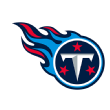The 11 NFL quarterbacks who could get mega extensions in 2019

It's difficult to overstate just how important quarterback contracts are to success in the NFL. Finding a valuable quarterback on a rookie deal has been the league's Holy Grail since the NFL instituted a draft slotting system in the collective bargaining agreement in 2011. Maximizing the time teams get to spend with those passers helps, but even once they get paid market value, franchises build their rosters and their futures around the contract of the guy they have under center.
Typically, we see about five to six quarterbacks sign multiyear extensions during a calendar year. This year is likely going to be an exception. I don't think everyone I'm going to mention below will sign a deal over the next eight months, but as many as 11 quarterbacks could be in line to sign multiyear deals in 2019. One or more of them will be record-setting extensions in one way or another.
Let's run through those quarterbacks and their track records, and look at how their organizations typically conduct negotiations and structure contracts to try to get a sense of what they might expect to sign in the months to come. And let's start with the guy who just set a Tax Day deadline for his deal. ...
Jump to a section:
The superstar | The Class of '04
The Hall of Famers | The young guns
The fifth-year options | Who's next?
Group 1: The superstar
1. Russell Wilson, Seattle Seahawks
Remaining on his contract: One year, $17 million in cash ($25.3 million cap hit)
When I initially started writing this piece, I assumed that Wilson would let the draft play out and negotiate over the summer before eventually settling on a deal around training camp, as he did in 2015. Waiting would have the advantage of seeing whether anybody else on the list pushed the top of the quarterback market upward. Wilson, however, has moved his timetable up by insisting on an April 15 deadline for his new contract.
At this point, we know what Wilson is. Stick him behind a Tom Cable line and you get a very good quarterback who can single-handedly keep an offense afloat. Give him an ambulatory offensive line, and Wilson looks like one of the league's best quarterbacks. He threw only 427 passes last season as the Seahawks decided to run the ball into oblivion, but when he was asked to throw, he responded with the best passer rating of his career. It seems likely that Seattle will throw the ball more frequently this season; when you have offensive linemen publicly calling for more pass plays, it's a sign that you're not throwing the ball enough.
Wilson is a Hall of Fame-caliber quarterback, and at 30, the former minor league third baseman still has plenty of good years ahead of him. He also hasn't missed a start as a pro. There's no reason for Wilson to settle for anything short of a record contract.
What his new deal could look like: Four years, $140 million with $55 million guaranteed
Under general manager John Schneider, the Seahawks have limited their veteran extensions to four years, with no exceptions left on the roster. With that in mind, Wilson's representation will likely be looking toward the four-year, $134 million extension Aaron Rodgers signed in August. Rodgers had two years and just more than $40 million left on his previous extension, so the deal the Packers gave their star passer amounted to six years, $176 million.
The cap has gone up by a little more than 6 percent since Rodgers signed his deal, so just by applying the rising cost of the cap, Wilson's new contract should come in around four years and $142 million. If we use the round number of $140 million, his extension would place him on the books for five years and $157 million. By either new money or total compensation, Wilson would top Rodgers for the largest average annual salary in football.
Rodgers had more money guaranteed at signing, but that's a product of how the Seahawks tend to build their contracts. The Seahawks will likely guarantee a huge signing bonus for Wilson -- $50 million wouldn't be out of the question -- and a small base salary in Year 1, in this case $5 million. Wilson's cap hold for 2019 would fall from $25.3 million down to $17.1 million, which would create some cap room for the Seahawks to extend Bobby Wagner later this offseason.
Group 2: The Class of 2004
2. Ben Roethlisberger, Pittsburgh Steelers
Remaining on his contract: One year, $17 million in cash ($23.2 million cap hit)
There are two reasons Roethlisberger is likely to be the first of the three quarterbacks from his now-legendary draft class to sign. One is that he was first the last time their contracts came due. In 2015, Roethlisberger signed his extension in March, while Philip Rivers waited until August and Eli Manningsigned his deal in September. Roethlisberger got more in practical guarantees than Rivers, but he came away with $65 million over the first three years of his new deal, while Rivers was at $68 million and Manning sneaked slightly ahead at $68.5 million.
The other concern is public relations-related: The Steelers probably need to energize their fan base after moving on from both Antonio Brown and Le'Veon Bell in a matter of weeks. Roethlisberger isn't going to play anywhere else, of course, but extending their 37-year-old quarterback allows the Steelers to draw a line underneath a frantic free-agent period and get back to the business of locking up their stars. This offseason, it will be Roethlisberger; next year, they'll be able to extend JuJu Smith-Schuster and James Conner.
Big Ben looked like he took a step backward on deep throws last season, but he shouldered an enormous workload in throwing a league-high 675 passes. Crucially, the future Hall of Famer has been able to stay healthy; for just the second time in his career, he managed to go consecutive seasons without missing a game due to injury. Most players don't get healthier as they age into their late 30s, but Roethlisberger has missed only one start via injury since the 2015 playoffs.
While I wrote about how the Steelers refuse to guarantee multiple years of base salaries as a policy, the one exception they'll make on this current roster is for Roethlisberger. In his previous extension, he had the second and third years guaranteed for injury. The Steelers might be willing to guarantee only the second year for injury given Roethlisberger's advancing age, but he is also likely to get a large enough signing bonus to render the base salary guarantee irrelevant.
What his new deal could look like: Four years, $116 million with $44 million guaranteed at signing
Roethlisberger's 2015 extension provided him with the largest annual average salary in terms of new money, at $21.9 million per year, but I doubt he's going to get more than Rodgers or Wilson will get on their deals. This gets him to $29 million per season in new money, which would be fourth in the NFL behind Rodgers, Wilson and Matt Ryan.
This deal would lock up Roethlisberger well into his 40s. I don't think he's actually going to play four years, but the Steelers will probably want to keep five years (which includes the final season of his current deal) on the books to help spread out that $44 million signing bonus over as long of a time frame as possible. We would be looking at about $87 million over the first three years of this contract, and the Steelers would guarantee his 2020 base salary of $15.5 million for injury.
3. Philip Rivers, Los Angeles Chargers
Remaining on his contract: One year, $16 million in cash ($23 million cap hit)
Remember that when Rivers was up for this extension in 2015, there was speculation that he wouldn't want to play in Los Angeles, and that the Chargers would trade him to the Tennessee Titans as part of a deal to draft Oregon quarterback Marcus Mariota. The Chargers went to Oregon to meet with Mariota, but they eventually decided to extend Rivers, who seems to be getting better with age and doesn't appear to be too upset about playing in Los Angeles.
The NC State product just posted the second-best passer rating (105.5, fractionally behind an identical rating in 2008 and ahead of the same rating in 2013) and third-best Total QBR (70.0) of his career. There also aren't the same sort of injury concerns for Rivers, who hasn't missed a start since taking over for Drew Brees in 2006, even playing through a torn ACL in the 2007 playoffs.
What his new deal could look like: Four years, $120 million with $48 million guaranteed at signing
Last time around, Rivers got a slightly higher average annual salary and three-year compensation by waiting for Roethlisberger to go first. Unless the Chargers plan on going after Dwayne Haskins or somebody else in this year's draft and moving on from Rivers after 2019, it seems likely that he will get the slightly larger salary this time around, too. General manager Tom Telesco gave Rivers a no-trade clause in that 2015 extension, so it wouldn't be shocking to see another one in this contract.
The Chargers have about $10 million in cap room, but they can actually keep Rivers' cap hold neutral by giving him a $40 million signing bonus and an $8 million base salary for 2019. With $7 million in already-paid bonuses stuck on the cap for 2019, Rivers' cap hold for 2019 would stay steady at $23 million.
4. Eli Manning, New York Giants
Remaining on his contract: One year, $17 million in cash ($23.2 million cap hit)
In 2015, it made some sense to link these three passers together. The contracts they signed clearly had some relation to each other. In 2019, though, there are only a few people who would keep them in the same category or even consider handing Manning an extension, but three of those people appear to be the general manager and the co-owners of the Giants. At the very least, there has been speculation that the Giants will extend Manning past the final year of his current deal.
I still think it's more likely they'll move on from Manning after this season, but I also would have pegged the chances that the Giants would trade Odell Beckham Jr. less than a year into his new extension at somewhere around zero percent, so what do I know? The Giants are confident they're on the right track, and everything they've suggested so far indicates that they see Manning as part of their short-term plan.
What his new deal could look like: Two years, $52 million with $20 million guaranteed at signing
Even the Giants can't think that giving Manning a four-year extension would make sense, right? Having $20 million guaranteed isn't quite as bad as it sounds when you consider that Manning is already penciled in to take home $17 million this year; this deal would just guarantee Manning slightly more than that while tacking on two extra non-guaranteed seasons if the Giants do decide to keep him around.
Group 3: The Hall of Famers
5. Tom Brady, New England Patriots
Remaining on his contract: One year, $15 million in cash ($27 million cap hit)
If you've paid even modest attention to the NFL over the past decade, you know that Brady has a reputation for taking less than his market value to try to help the Patriots build a winner. Simultaneously, though, you can look above and notice that his cap hit for 2019 is a whopping $27 million, which is the fourth-largest in the league. When the Patriots needed to create cap space in March, they had to go to cornerback Stephon Gilmore and restructure his deal to create $5.7 million in space, a move they usually make by either restructuring or extending their star quarterback's deal.
Has Brady really taken a discount to help the Patriots? I went back through his old contracts with the help of the PatsCap site to try to untangle the various restructures and get a sense of what he actually expected to make when he signed his extensions, starting with the four-year deal he signed in August 2002. I left out the years that were left unplayed or unpaid because Brady signed new deals to replace his old contracts. I've also translated what he was paid in terms of the cap to 2018 dollars to contextualize what his salary from early in the Pats dynasty might look like today:
You could certainly argue that Brady deserved more money over that time frame, of course, but he's really been taking a significant discount since only the 2013 season. You'll also note that the Patriots managed to sneak a $19 million cap hit -- which turned out to be $20.3 million in real life after restructures -- into the uncapped season of 2010. If we use the average of the 2009 and 2011 cap numbers to project an "expected" 2010 cap of $121.5 million, Brady's $19 million hit would have translated to a $27.7 million figure in 2018 dollars. (Cue angry Dallas and Washington fans.)
The future Hall of Famer is set to take up more than 15 percent of the Pats' cap in 2019, which would be out of line with his career marks. Brady continues to play at a high level, and if he still wants to play until age 45, that would mean the 41-year-old would need to be under contract through the 2022 season, which is four campaigns away. The Pats have been sticking with two- and three-year deals for Brady over his past four extensions, though, so it seems more likely they'll hand out a shorter deal, then give him one final contract.
What his new deal could look like: Three years, $54 million, $25 million guaranteed at signing
Brady's contract is the most difficult to project because there's nothing to peg his deal against. He could settle for $5 million per season if he's so inclined, a privilege that is far easier to enjoy when you have millions of dollars in endorsements, your wife is worth hundreds of millions of dollars, and you've already taken home more than $200 million in NFL salary. Brady also could just as easily justify a four-year, $140 million contract if he wants to get a big deal. He's calling the shots here.
My guess is that he takes a three-year deal with a significant signing bonus to reduce his 2019 cap hit and keep his 2020 hold low before signing one final contract in the spring of 2021. If the Pats give him a $24 million signing bonus and a $1 million base salary for 2019, Brady would take home $25 million, but the Pats would see his cap hit fall from $27 million to $21 million.
6. Drew Brees, New Orleans Saints
Remaining on his contract: One year, $23 million in cash with a voided season ($22.7 million cap hit in 2019, $21.3 million cap hit in 2020)
How can you have two years of cap hits when Brees has one year left on his contract? Well, you throw in automatically voiding seasons to spread a bonus over multiple seasons. The Saints did that with Brees' 2016 extension and repeated the tactic in his 2018 deal, but they've furthered their exposure by converting $21.6 million due as part of a base salary and a roster bonus to a signing bonus. In doing so, they paid Brees all of that money up front while spreading the cap hit over the two remaining years of the contract.
In this case, the Saints are already guaranteed to owe $21.3 million for Brees on their 2020 cap, regardless of whether he's on their roster, which amounts to $10.5 million from his original signing bonus and $10.8 million in cap restructures. If Brees retires after the season or takes a big step backward, the Saints will be eating that money. His contract is already guaranteed to detonate after the 2019 season.
What's interesting here, though, is that the Saints could have restructured Brees' deal in March by giving him an extension. Tacking an extra year or two onto his deal would have allowed them to hand him a $22 million signing bonus while spreading it over three or more seasons as opposed to merely working within the constraints of the two (on-paper) years remaining in his current deal.
It's interesting -- and perhaps telling -- that they chose not to hand Brees such an extension. Now, given that he is down to a base salary of $1.4 million, New Orleans can't really do anything else to create further breathing room with regard to his current deal. A new deal wouldn't impact the $21.3 million waiting on their cap in 2020, although it would create an opportunity for Brees to remain on the roster if he wants to come back for a 20th season.
What his new deal could look like: Three years, $54 million with $6 million guaranteed at signing (voids after 2020)
This deal would really just be a vessel to try to keep Brees on the roster in 2020 while kicking the cap concerns down the line. The Saints could give him a relatively small signing bonus --- let's say $6 million -- to keep his 2019 cap hit in the same neighborhood, but then throw in a $24 million option bonus as a de facto signing bonus before the 2020 season.
If they do that, they would pay Brees $25 million (the $24 million option bonus with a $1 million base salary) in 2020 with a cap hit of $31.8 million. That's a lot of money, but it would leave him with the fourth-largest hit in football, which isn't out of the question. Then, the team would owe $16 million in dead money on its 2021 cap after Brees' new deal voids. It's a risky play, but the Saints are clearly comfortable going all-in for the end of his career.
Group 4: The young guns
7. Carson Wentz, Philadelphia Eagles
Remaining on his contract: Two years, about $27 million in cash ($8.5 million cap hit in 2019, about $23 million in 2020)
You'll note that the first four veterans I mentioned have one year left on their respective deals. Wentz is also technically on the final year of his rookie deal, but the Eagles will surely elect to pick up his fifth-year option for 2020, which should come in around $23 million. That fifth-year option would be guaranteed only for injury, but I'm treating it as guaranteed because the chances of the Eagles moving on from Wentz for skill reasons are rightfully nil.
In most cases under the current CBA, teams prefer to let their first-round picks play out the cost-controlled first four years of their rookie contracts before signing them to an extension in advance of Year 5, when their salary takes a notable jump, especially for players in the top 10. (Teams can't sign rookies to extensions before their fourth year in the league.) Of the first-round picks drafted under the current CBA to sign extensions of three seasons or more during their rookie deals, about two-thirds have waited until their fifth season to re-sign.
The exceptions tend to be players who are MVP candidates and teams who have a history of locking up players early in their careers, and this match fits both criteria. Wentz, of course, was likely about to win the MVP award in 2017 before going down with a torn ACL in December. Injuries remain a concern, given that he missed the final three weeks of the 2018 season and two playoff games with a back injury, but Wentz is Philly's guy.
The Eagles, meanwhile, have been one of the most aggressive teams in the league in extending young talent going back through the days of former team president Joe Banner. They've extended only two of their first-round picks under the current CBA in Fletcher Cox and Lane Johnson, but in Johnson's case, GM Howie Roseman signed his right tackle to an extension the month after his third season in the league. That's about as early as legally possible. He hasn't done the same thing with Wentz, but at the very least there are going to be serious discussions about locking up Wentz this offseason.
Finding common ground on a contract will be tough. Only one first-round quarterback under the current CBA has signed an extension after three seasons, and that was Ryan Tannehill, who got a very different sort of contract from the deal Wentz is likely to target.
Simultaneously, though, the Eagles hold a lot of leverage, with Wentz two years from even touching a franchise tag. They could theoretically go year to year with the former second overall pick and pay him something close to $55 million over the next three seasons in cash without having to commit on a long-term deal. When you consider that Jimmy Garoppolo booked $86.4 million over the first three years of his new deal with the 49ers, you can see how much compromise there has to be to make this deal work. The Eagles would have to throw away their leverage to give Wentz the sort of deal he would get on the open market or Wentz would have to settle for an Alex Smith-sized extension with significant per-game roster bonuses. Neither seems likely.
With that in mind, my guess is that the Eagles and Wentz will wait until 2020 to sign a new deal. Wentz will likely want to negotiate after a healthy season, and Roseman has too much to gain from keeping Wentz at an $8.5 million cap hit for 2019, even if it just means rolling money over to next season.
What his new deal could look like: Five years, $146 million with $50 million guaranteed at signing
Wentz's agent probably wouldn't be willing to settle for less than what Garoppolo got from the 49ers in February 2018, even given that Garoppolo was about to hit free agency. Factor in the cap increase and you get just south of $30 million per season, where Matt Ryan's five-year, $150 million extension came in last May. Ryan was already due $19.3 million for 2018 and actually had an MVP trophy in his cabinet at home.
In all, Wentz would be looking at six years and $150 million when you factor in the $4 million or so in cash he's due for 2019. It would be a considerable discount for Wentz, who would almost definitely fetch north of $30 million per season by waiting one year. The 49ers can get out of Garoppolo's deal after two years and $60 million, and while Wentz's initial deal would likely have an out after a couple of seasons, the Eagles would probably have to build in guarantees for future years if he stays healthy and productive in 2019. In all, it's tough to see a way this could satisfy all parties.
8. Jared Goff, Los Angeles Rams
Remaining on his contract: Two years, about $28 million in cash ($8.9 million cap hit in 2019, about $24 million cap hit in 2020)
It's more plausible that the Rams will get a deal done with Goff. Under GM Les Snead, they have been the most aggressive team in football with regards to locking up their first-round picks after three seasons. The Rams re-signed Robert Quinn after three seasons before the 2014 campaign, extended Tavon Austin before the 2016 season began, then gave Todd Gurley a massive new extension during the summer of 2018.
The Gurley deal contextualizes just how the Rams are willing to reward key contributors. After Gurley broke out with an impressive 2017 campaign, the team still had him under contract for one more year on his rookie deal before a fifth-year option and a possible franchise tag at a position where the top of the market was totally stagnant. In all, L.A. could have gone year to year with a player who had a torn ACL in his past and paid less than $30 million over three seasons. In Gurley's extension, though, the Rams handed Gurley $40 million in practical guarantees over that same time frame. One year later, although he played at a high level when healthy in 2018, there are reports that his left knee is arthritic.
The Rams could go year to year with Goff, who would make about $60 million or so over the next three campaigns. The Gurley extension suggests they aren't worried about paying market value to a player if they think he's a star, even if it means giving away their leverage in the process. The Rams seem hypersensitive to any argument that they might move on from their franchise quarterback. It would hardly be shocking if they came to terms with Goff on an extension this offseason, although with less than $4 million in cap space, they would have to get creative with the structure of the deal.
What his new deal could look like: Five years, $155 million with $54 million guaranteed at signing
L.A. would likely need to hand Goff a relatively small signing bonus with a larger option bonus due in the second year of his deal, which is similar to the structure of Brandin Cooks' extension. Cooks got just a $7 million signing bonus and $11 million in Year 1 of his deal, but the Rams guaranteed Cooks' $17 million option bonus for 2019 at signing as the second installment of a bonus. The structure of Cooks' five-year, $81 million deal leaves the former Saints and Patriots wideout practically guaranteed to recoup $50.5 million over three seasons.
With Goff, the structure would be the same but the dollar figures would be higher. The Rams could keep his 2019 cap figure low by offering a $6 million signing bonus and a $3 million base salary, which would keep his 2019 charge modest at $8.8 million. L.A. also would guarantee Goff's option bonus for 2020 at $35 million and pay him an additional $6 million roster bonus on the day that option guarantees. Throw in a $4 million base salary for 2020 and we're looking at $54 million over two seasons for him. The structure of the deal would make it difficult for the Rams to get rid of Goff before 2022 at the earliest, but it's pretty clear they're all-in with him as their star passer.
9. Dak Prescott, Dallas Cowboys
Remaining on his contract: One year, $2 million in cash ($2.1 million cap hit)
For three years, Prescott has been the NFL's most underpaid player. That's about to change. It's unclear exactly how big his deal is going to be, but a quarterback who made just under $40,000 per game last season might very well take home $40,000 per snap this upcoming campaign.
It seemed like Prescott was on the downswing after taking a step backward in 2018 and struggling early in the 2019 season, but the arrival of Amari Cooper helped transform him and the Cowboys' offense. Prescott's passer rating jumped from 87.4 before the Cowboys' Week 8 bye to 103.0 afterward. His career rate stats are better than Wentz's, and that's before factoring in Prescott's health and his considerable impact as a runner. Prescott is not a top-five passer, but given that the Cowboys wanted to draft Paxton Lynch and Connor Cook before settling on Prescott, Jerry Jones & Co. shouldn't be confident that they can find a better quarterback than Prescott if they go back into the draft.
What his new deal could look like: Six years, $168 million with $60 million guaranteed at signing
The Cowboys build their team around a stars-and-scrubs approach and construct their cap around paying those guys on long, oft-restructured deals. It's a great approach when those players stay healthy and productive, but if something goes wrong, Dallas is left to pick up the pieces with lots of dead cap. (I wrote more about this last September.)
Given the way the Cowboys structure their deals, Prescott isn't likely to break the NFL record for average annual salary, especially if Wilson pushes that figure upward. It seems more likely that he'll set a mark for most dollars in an NFL deal, which this contract considers. Prescott's $168 million figure would top the $150 million Ryan got from the Falcons or the $155 million Goff would pick up from the Rams in the deal I mentioned above, although none of those figures is guaranteed.
Prescott would take home a $40 million signing bonus and keep his $2 million base salary for 2019. The Cowboys ran 1,022 offensive plays last season, so at that mark, Prescott would earn $41,095 per snap, topping his weekly base salary of $37,058 from a year ago. The Cowboys also would guarantee an $18 million base salary for 2020 to get to $60 million in guarantees, although they will almost surely turn most of that base salary into a signing bonus to create cap space next season.
Group 5: The fifth-year options
10. Marcus Mariota, Tennessee Titans
Remaining on his contract: One year, $20.9 million in cash and on cap
Few players in the league have more riding on what happens in 2019 than Mariota and the next player on this list, Jameis Winston. You could put them in either order, if only because it's unclear whether one is more likely to get signed than the other. I'm starting with Mariota solely because he doesn't have the sort of off-field concerns Winston has exhibited since arriving at Florida State.
After four years, it's not clear we know very much about what we can expect from the former Oregon star from week to week. The injuries are clearly both a concern and a cause of the inconsistency, and they might be the biggest reason to not sign Mariota to an extension. At the same time, what do the Titans do if Mariota plays effectively for a full 16-game season in 2019? Do they write off four years of incomplete campaigns and just hope it's the new normal? Mariota has been forced to wrestle with what will now be five offensive coordinators in five seasons, but not one of them has managed to coax the sort of All-Pro-caliber season Mariota's college tape and stats seemed to hint at if he were placed in the right scheme.
On the whole, when you look at Mariota's record, you see a quarterback who actually has been consistent. If you ignore the 2017 season, Mariota has averaged 7.6 yards per attempt and posted a passer rating between 91.5 and 95.6 in each of his three other campaigns. He's good for about 60 carries and 300 rushing yards per season. He's going to fumble more than you might like and throw interceptions at just slightly below a league-average rate.
After adjusting for this era, Mariota is about an average quarterback with some propensity for late-game plays and an ugly injury history. The coaching staff and general manager who originally drafted him are long gone, and while Mike Vrabel and Jon Robinson haven't made any overtures toward replacing Mariota, they might not necessarily get a shot at drafting a second quarterback if he signs a long-term extension and it doesn't work out. Whether Tennessee signs him now or waits until after the 2019 season, it will have to be creative with a new contract.
What his new deal could look like: Five years, $140 million with $32 million guaranteed at signing
Right now, the Titans need Mariota more than any other team needs Mariota. Understanding that they acquired Ryan Tannehill, it's hardly as if the former Dolphins starter is a reliable, long-term solution. It's also true that Mariota needs the Titans more than any other team; it's difficult to see him getting $30 million per season in free agency next offseason. This contract is most likely to resemble the six-year, $96 million extension Andy Dalton signed before the 2014 season, where the Bengals were really only committing to Dalton for two years and about $25 million before the contract went year to year. It could have even been a one-year pact if the Bengals had been willing to go slightly underwater to move on from their quarterback in Year 2.
This deal assumes Mariota signs after a competent 2019 season; it pays a $20 million signing bonus, a $5 million roster bonus, and a $1 million base salary to Mariota for $26 million in compensation in 2020, roughly where the franchise tag should come in. The Titans will have to guarantee $6 million of Mariota's $15 million base salary in 2021, and there should be another $5 million in per-game roster bonuses that Mariota can earn if he's on the roster, but both parties are going to need to be flexible to make an extension work.
11. Jameis Winston, Tampa Bay Buccaneers
Remaining on his contract: One year, $20.9 million in cash and on cap
The Winston roller coaster goes on. For the second consecutive season, Tampa is hopeful about the former first overall pick because of an impressive stretch at the end of the season. After being suspended to start the 2018 season and getting benched for Ryan Fitzpatrick in October, Winston came back into the lineup in Week 10 and played at a high level. The 25-year-old posted a passer rating of 100.1, took just two sacks per game and crucially threw just four interceptions over a span of six-plus games. Two of those picks were essentially Hail Mary attempts, too.
From the moment he was inserted back into the lineup, Winston posted a 72.7 Total QBR. That was the sixth-best mark in football and better than guys such as Brees, Wilson, Prescott and Baker Mayfield over that same time frame. One stat isn't everything, and it's a seven-start sample amid a 54-start career, but if Winston is that guy again in 2019, the Bucs are going to pay him a lot of money.
The Bruce Arians factor makes this an even more fascinating situation. Arians has helped mold young passers such as Roethlisberger and Andrew Luck, but in Arizona, he initially signed Drew Stanton as his team's starter before trading for Carson Palmer and installing him as the No. 1. General manager Jason Licht drafted Winston and is still with the team, but as someone whose job security is likely in tune with Winston's, it's no surprise that he told coaching candidates in December that Winston was the team's quarterback. Winston certainly has the arm strength to succeed in Arians' deep-passing attack, but we won't know whether he can get along with Arians until they actually work together for a season.
The only way I can imagine the Bucs sticking with Winston is if we get something close to the guy who excelled in the second half of 2018. If that Winston shows up, he's going to get paid.
What his new deal could look like: Five years, $150 million, $56 million guaranteed at signing
As is the case with Mariota, Winston's best chance at a big deal comes with his current team. There are organizations that won't touch Winston given that he has twice been accused of sexual assault. Any deal Winston signs is going to have language voiding guarantees if he's accused of committing a crime or gets suspended. That's going to be nonnegotiable.
The Bucs also structure their deals in a unique way, having adopted a pay-as-you-go cap strategy since the days of GM Mark Dominik. Tampa doesn't hand out signing bonuses as part of veteran contracts, which prevents it from spreading upfront payments over multiple years for cap purposes. The Bucs build their deals in a way in which they can move on from players if they don't work out without any dead money. They're essentially the anti-Cowboys in terms of cap structure.
With Winston, the Bucs will likely have to guarantee two years, although those figures will again be voidable in case of off-field incidents. He'll likely get a large upfront roster bonus of $15 million or so to go with an $8 million base salary in 2020, then a $26 million base salary with a $7 million roster bonus for the 2021 season. The Bucs would be able to move on from Winston without any dead money at that point if the former top selection doesn't live up to expectations on the field.
Who's next
The market isn't about to quiet down, either. Next offseason will be the first timeMitchell Trubisky, Deshaun Watsonand reigning league MVP Patrick Mahomes can start discussing extensions. Mahomes will be a particularly fascinating case, if only because there hasn't been a player who won league MVP on his rookie deal under the current CBA. Veterans such asKirk Cousins and Cam Newtonalso will be entering the final year of their extensions and coming up for negotiations.
There's also a reasonable chance at least one of these players will get franchised and we'll be rehashing this debate about them this time next year.
Related Video
Related Topics
- SPORTS
- ESPN
- NEW ORLEANS-SAINTS
- ELI MANNING
- PHILIP RIVERS
- RUSSELL WILSON
- JAMEIS WINSTON
- PHILADELPHIA EAGLES
- MARCUS MARIOTA
- FANTASY NFL
- CONTRACT EXTENSIONS
- TENNESSEE TITANS
- DAK PRESCOTT
- NEW ENGLAND-PATRIOTS
- SEATTLE SEAHAWKS
- JARED GOFF
- DREW BREES
- DALLAS COWBOYS
- LOS ANGELES-CHARGERS
- BEN ROETHLISBERGER
- LOS ANGELES-RAMS
- 2019
- CARSON WENTZ
- NFL
- QUARTERBACKS
- TAMPA BAY-BUCCANEERS
- TOM BRADY
- PITTSBURGH STEELERS

















